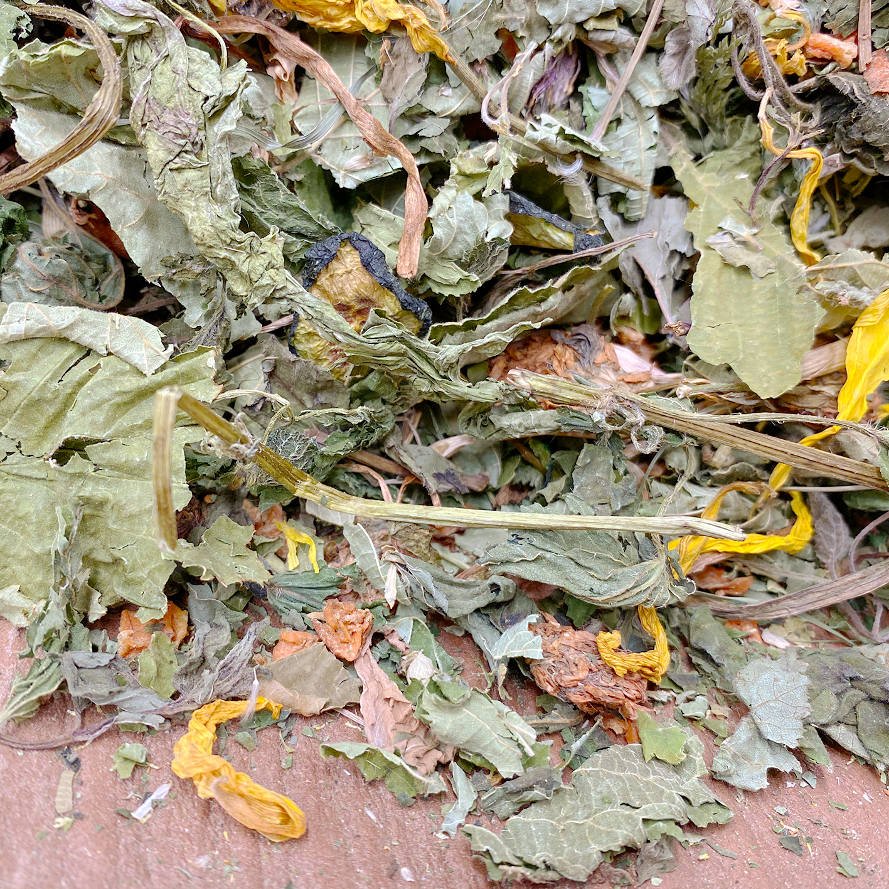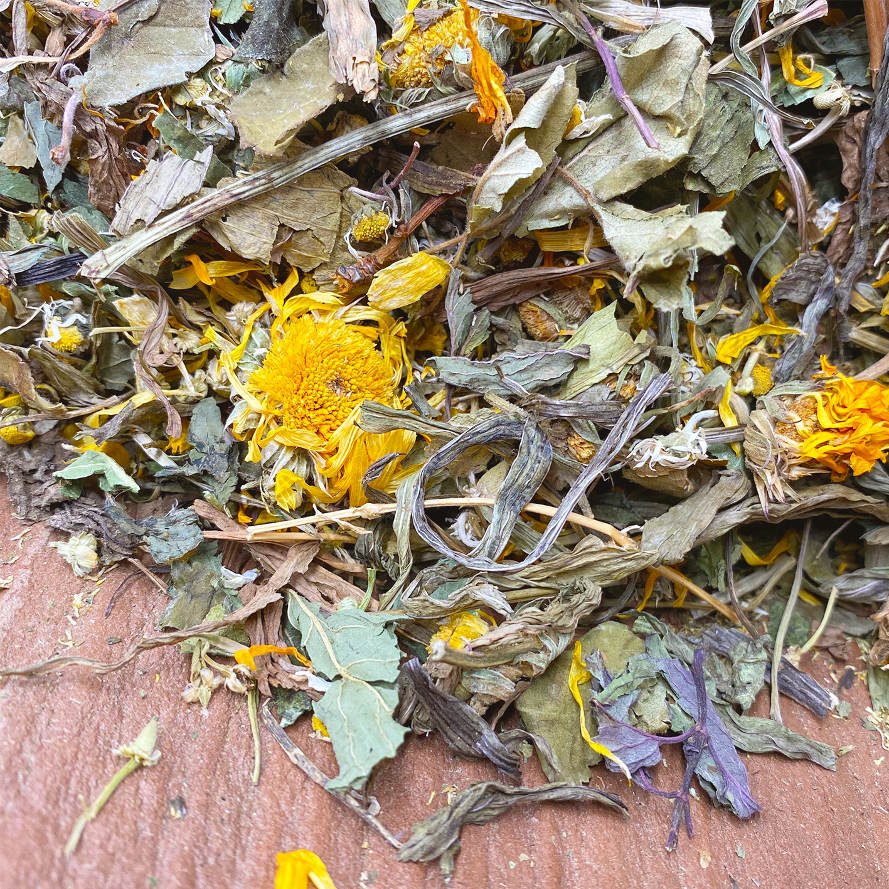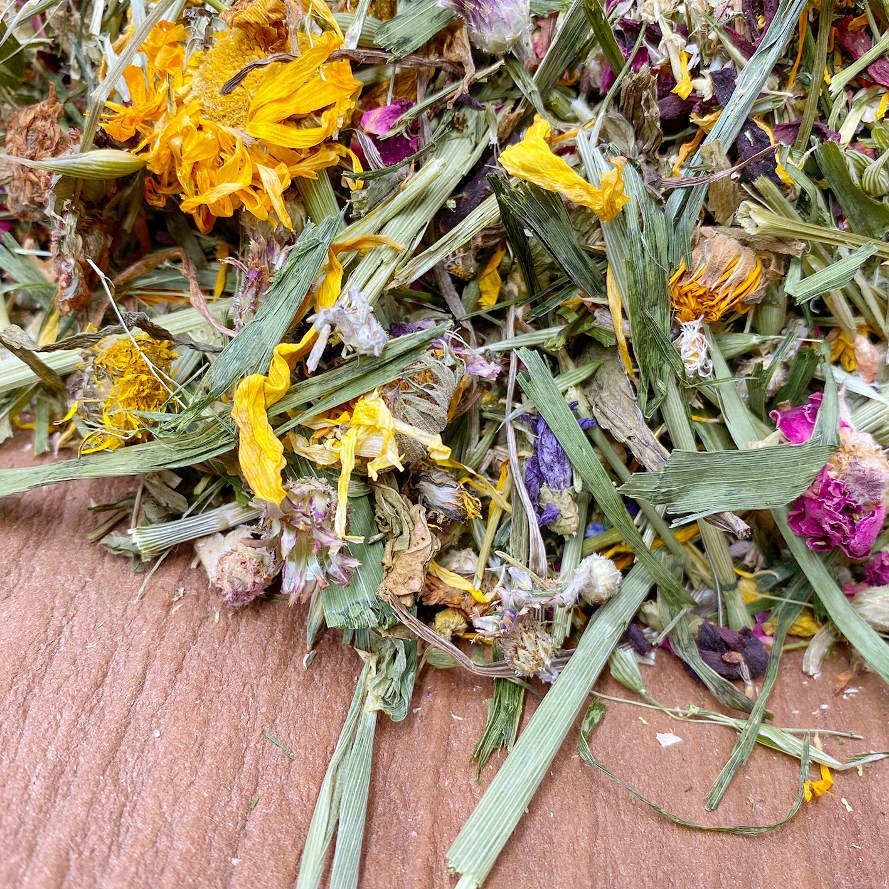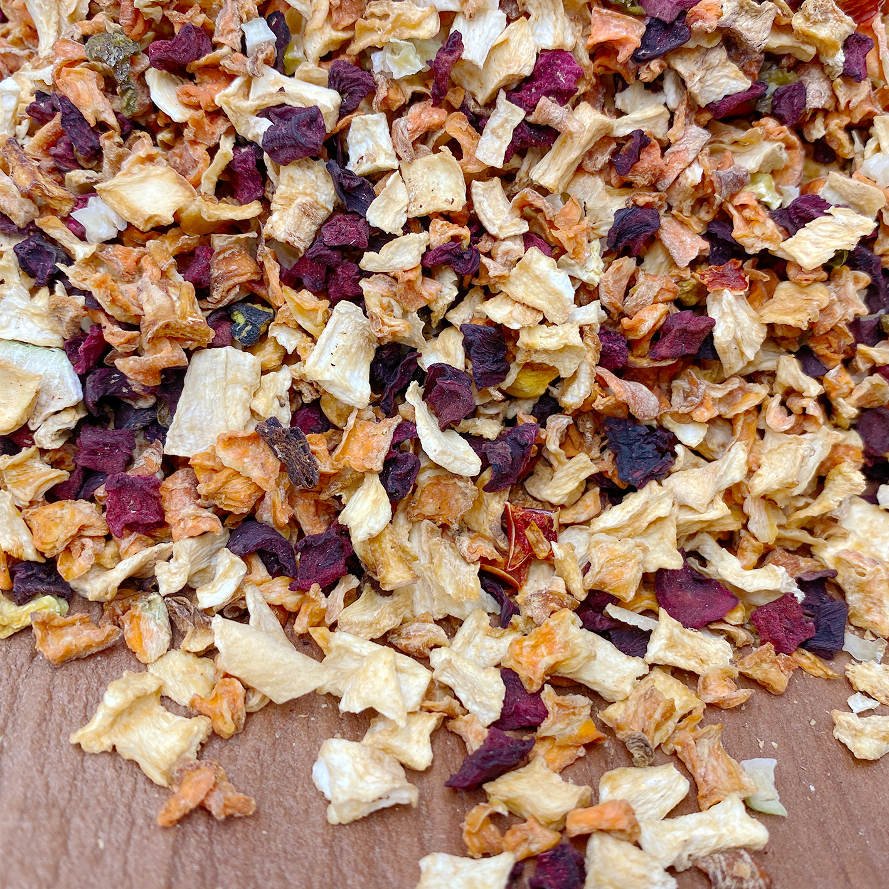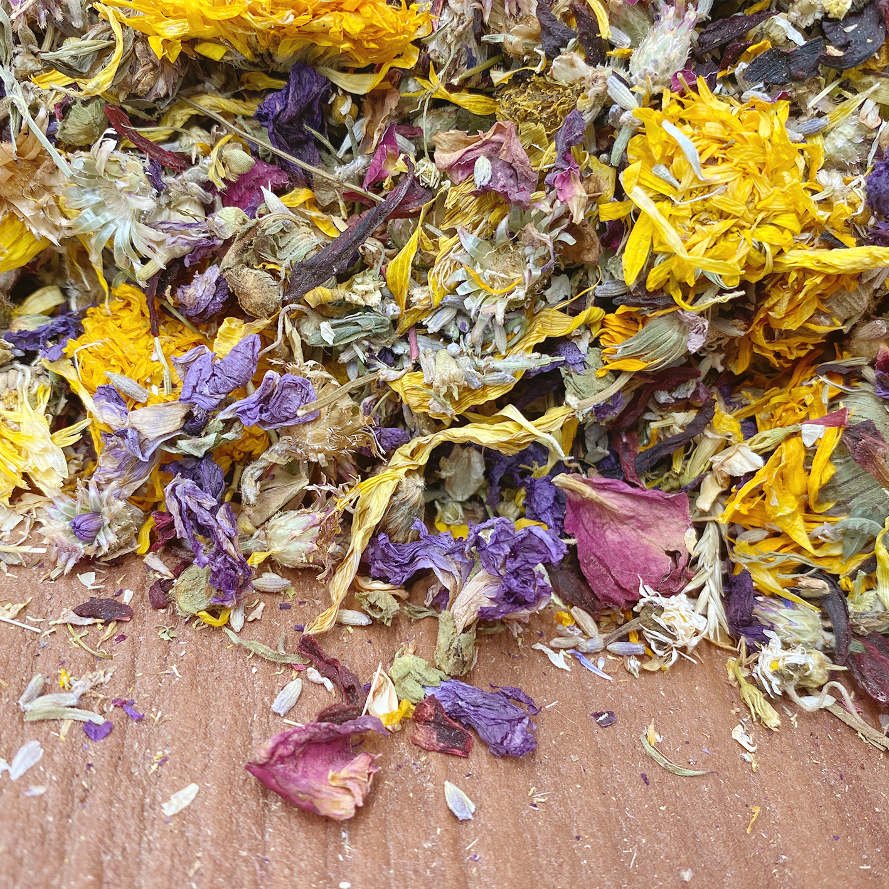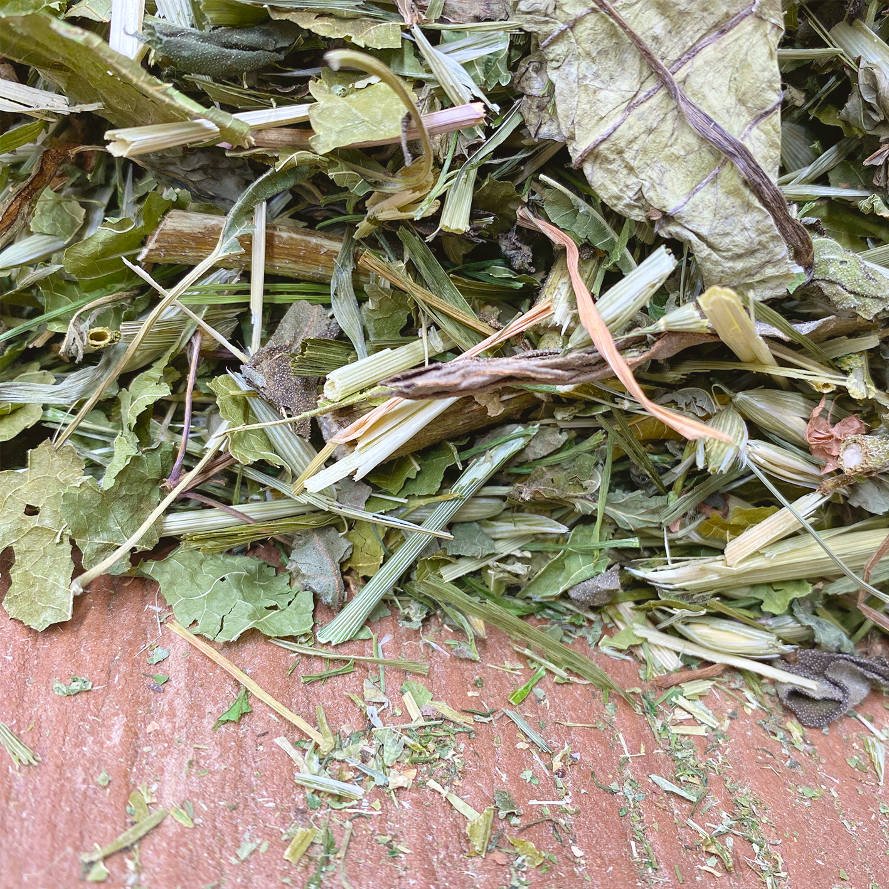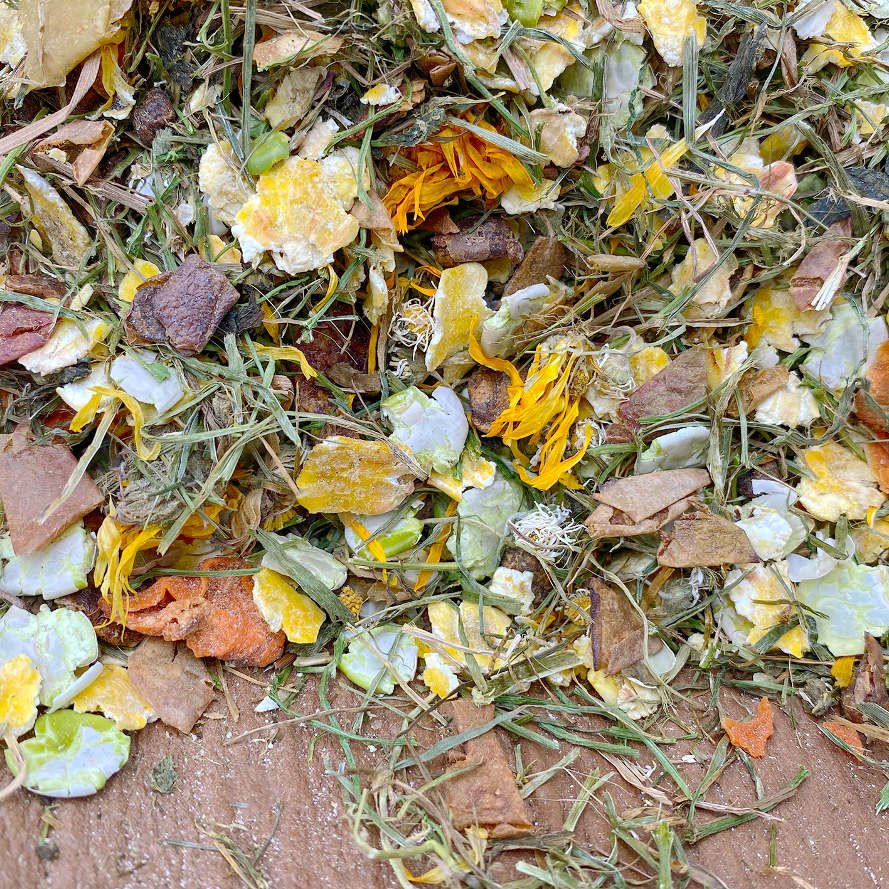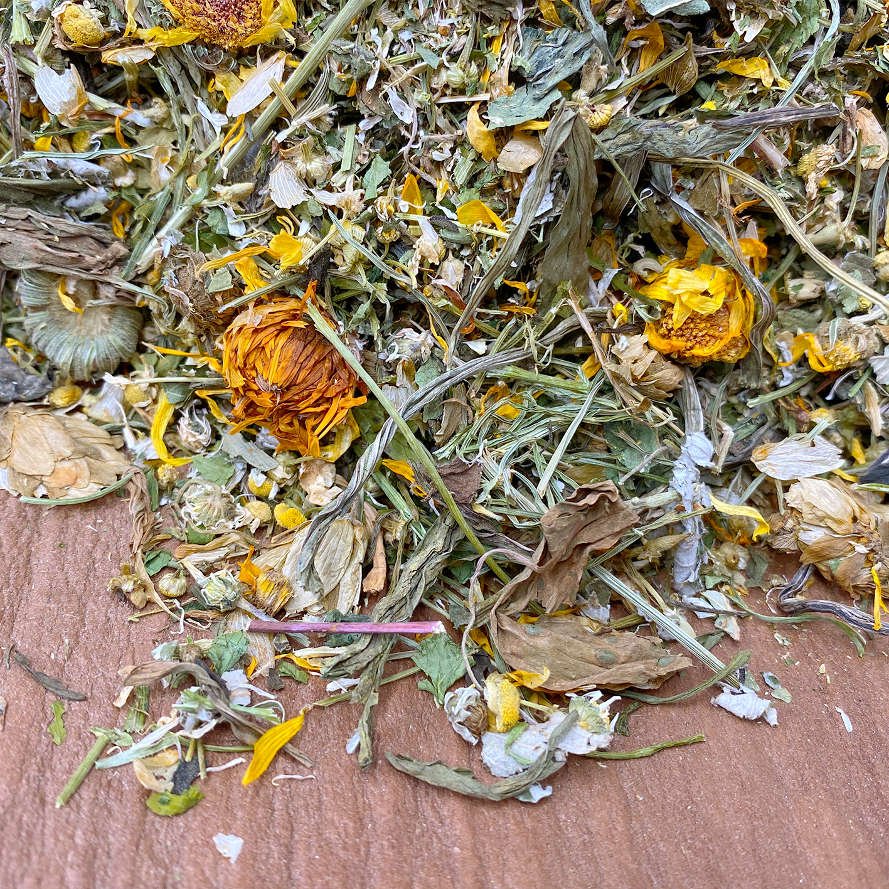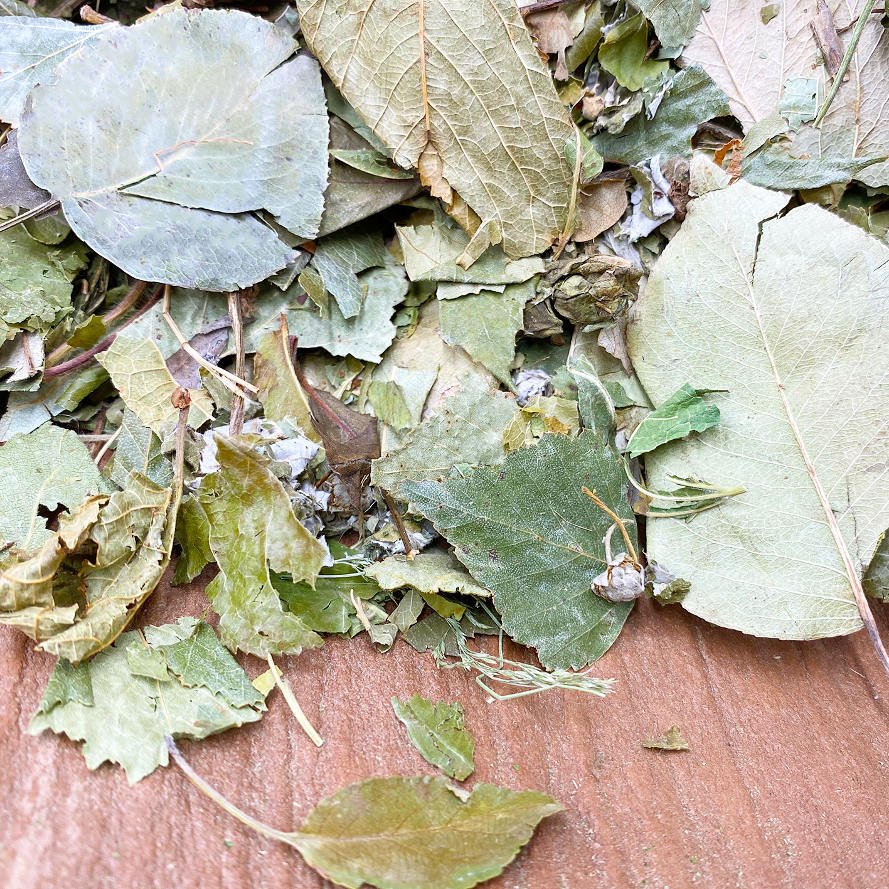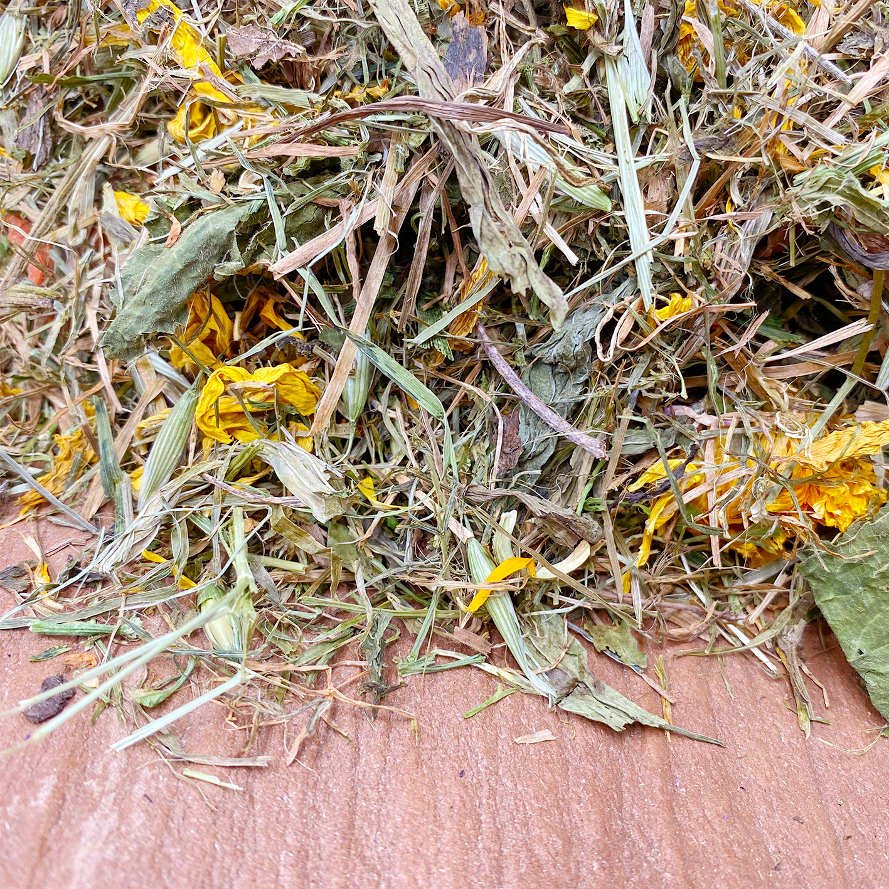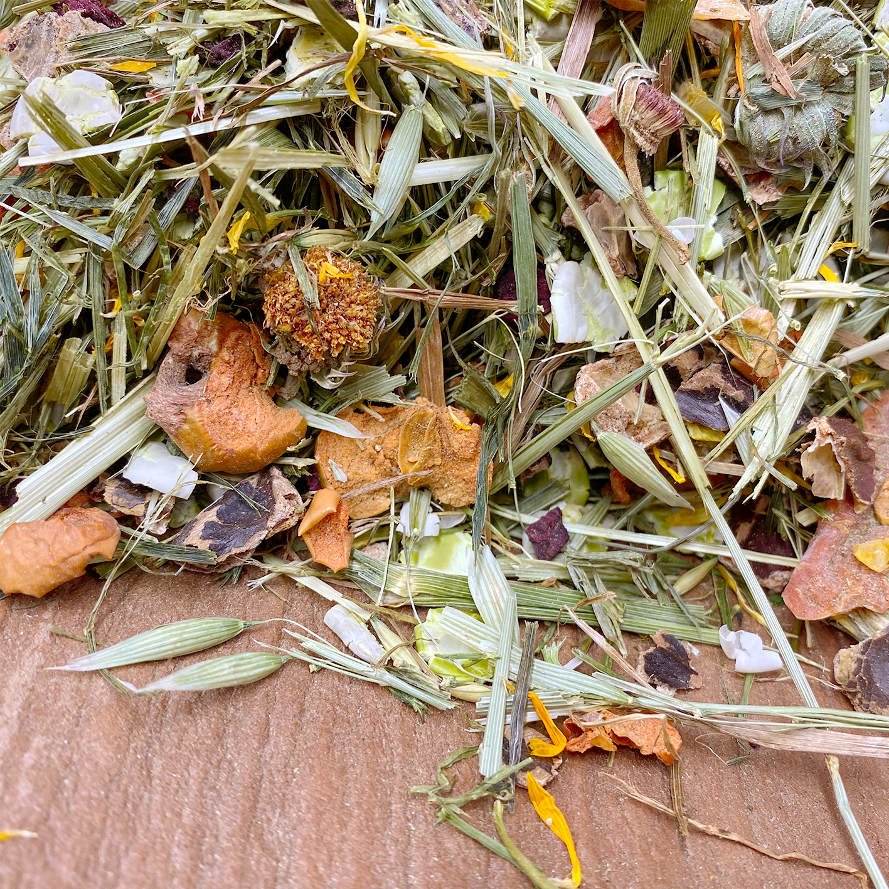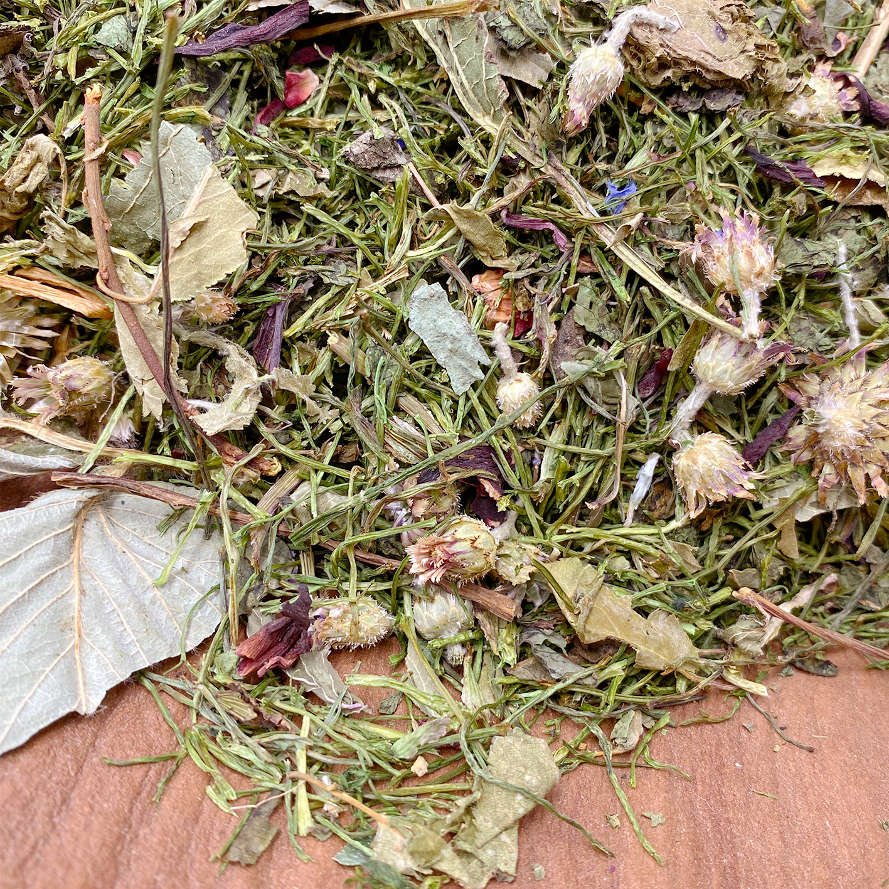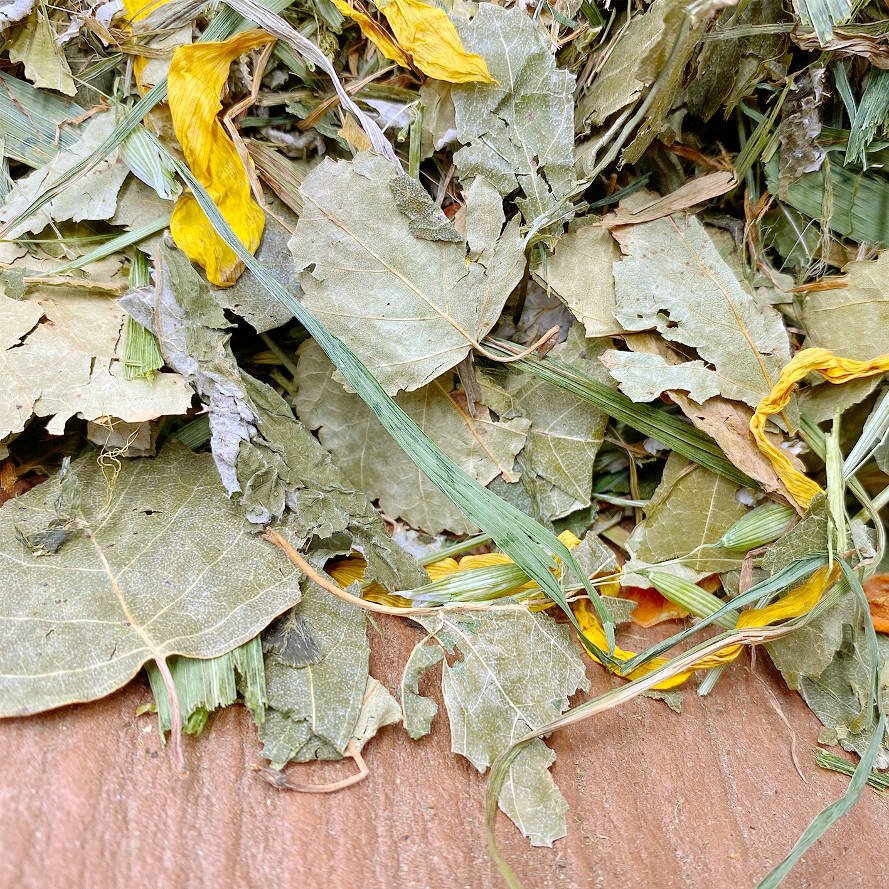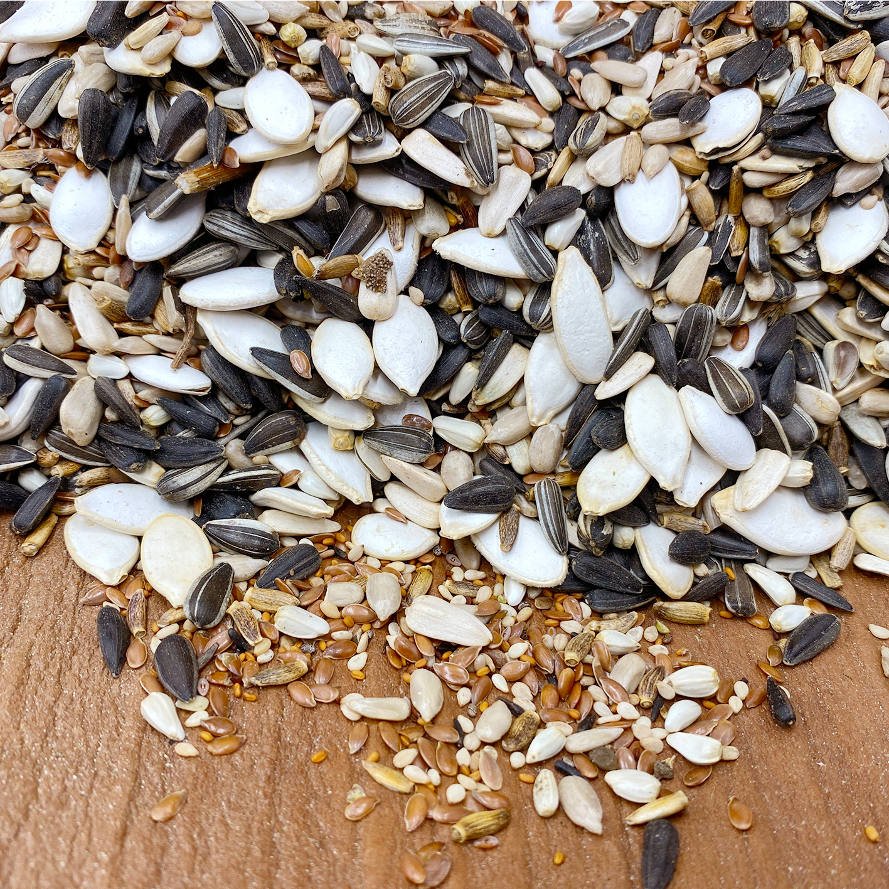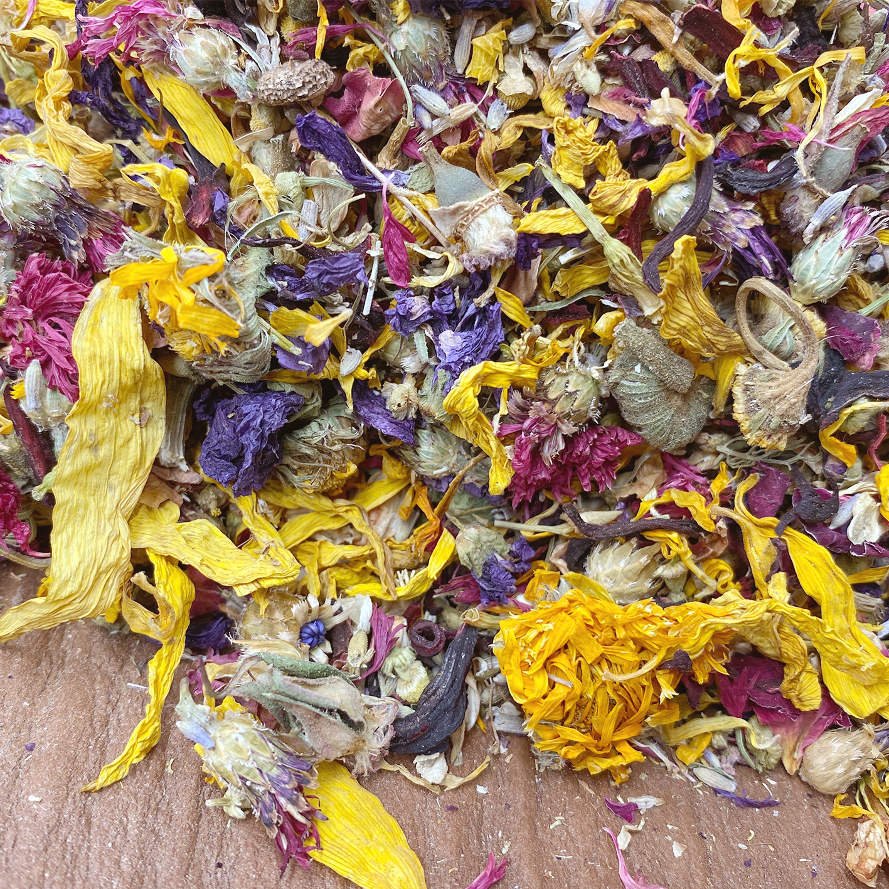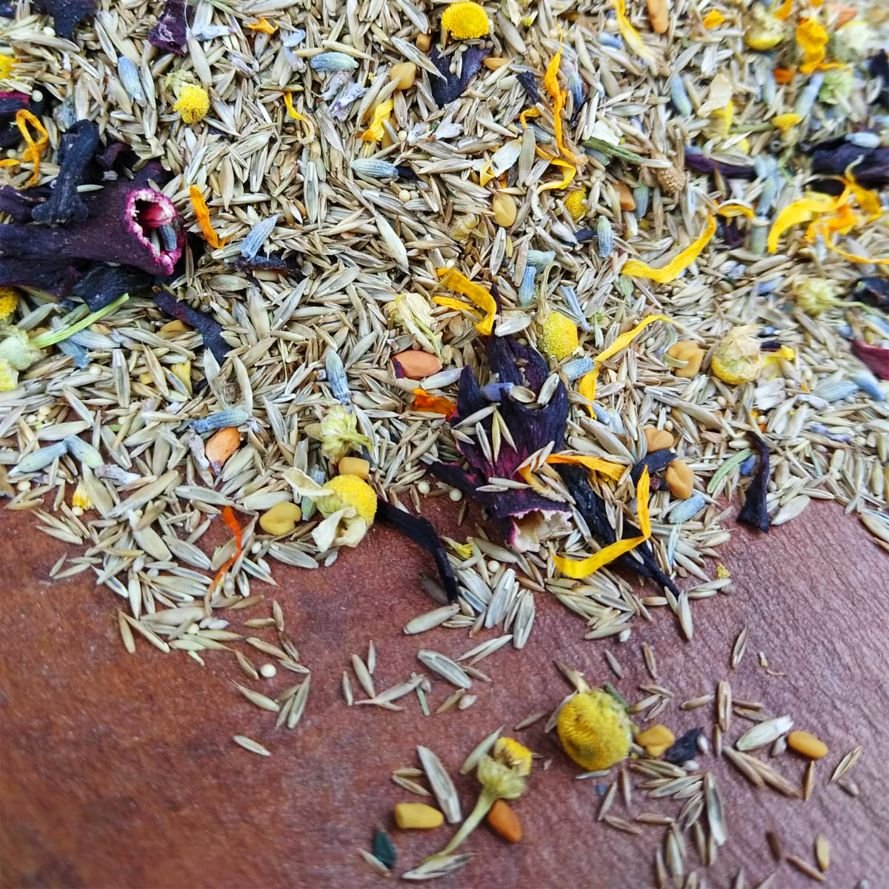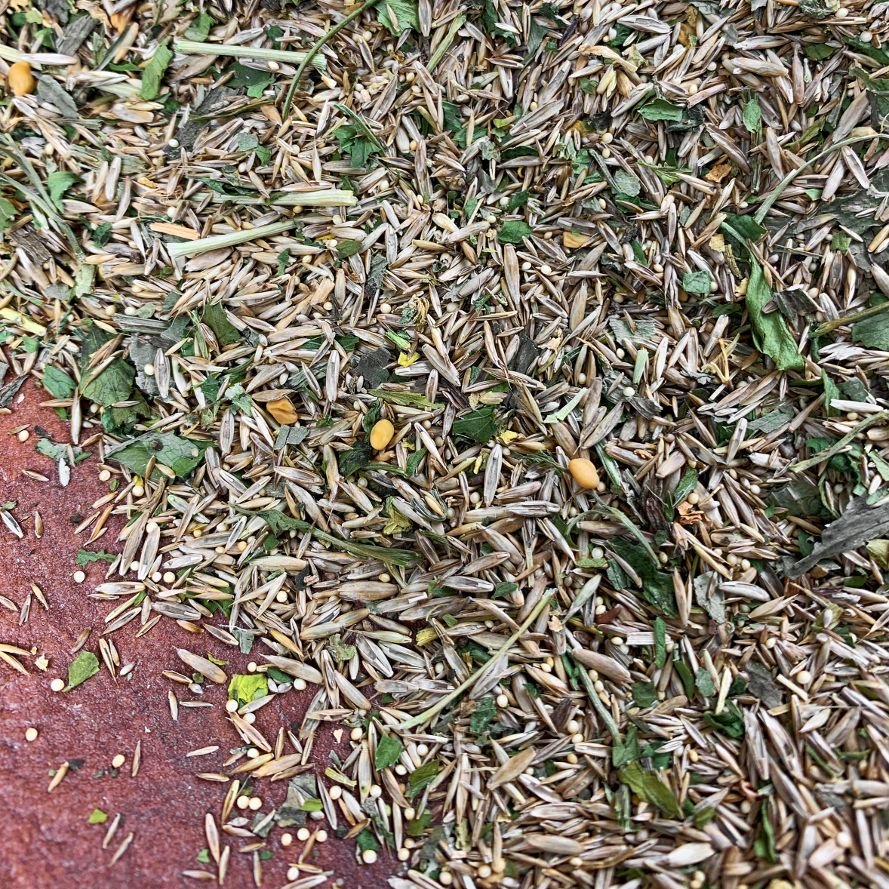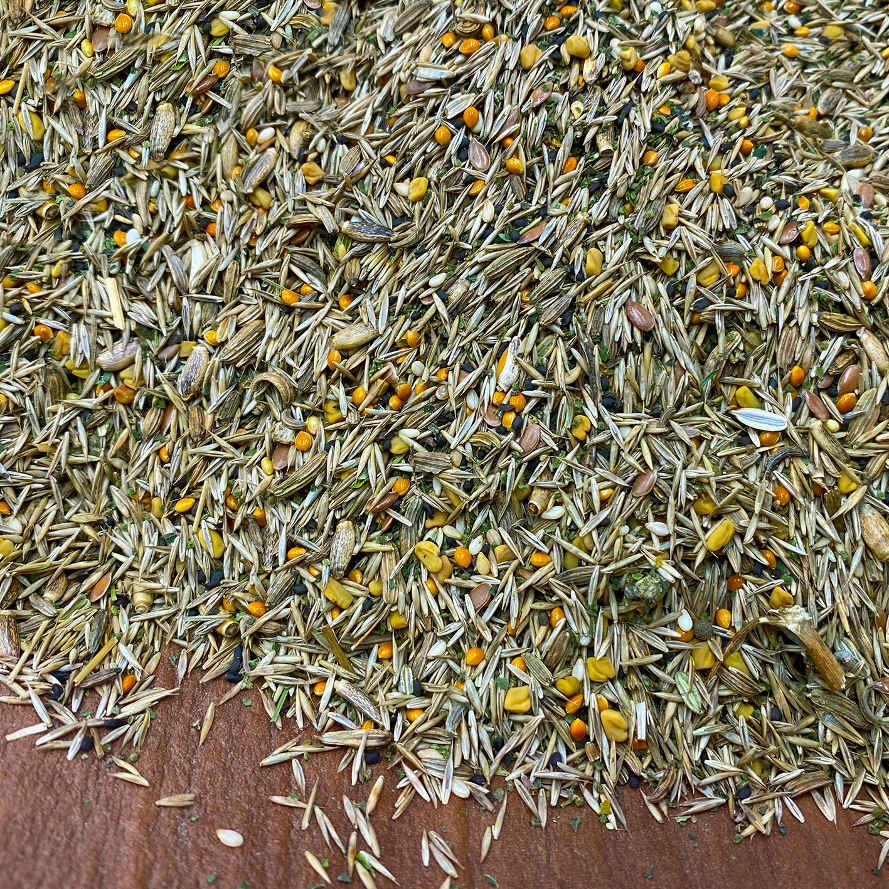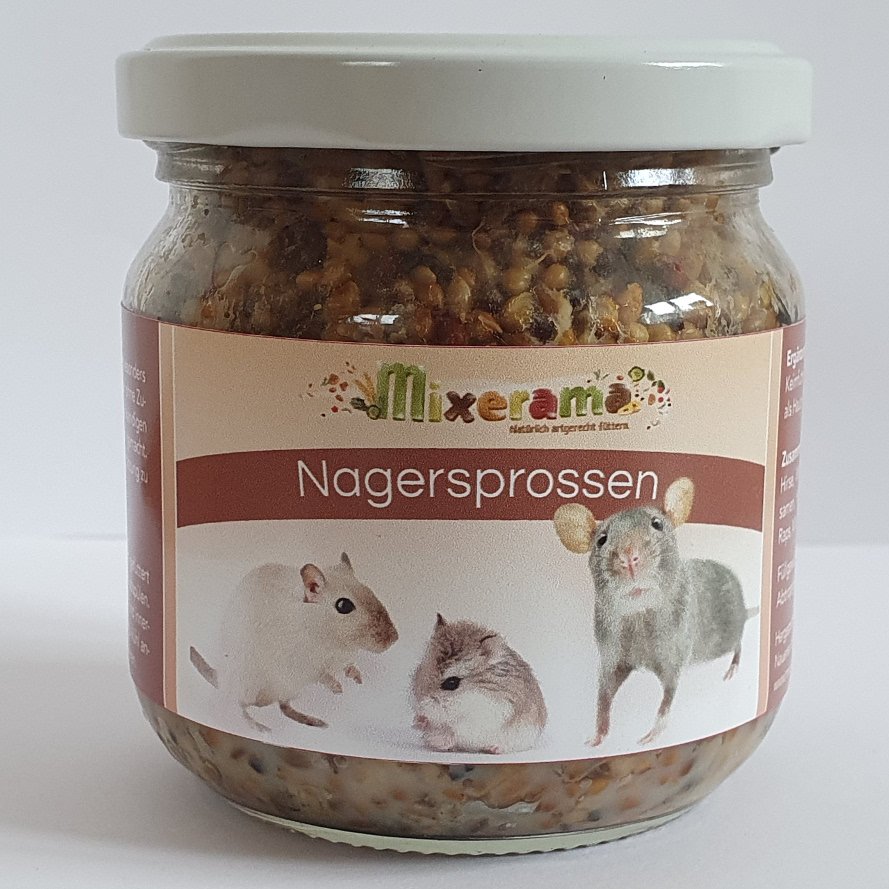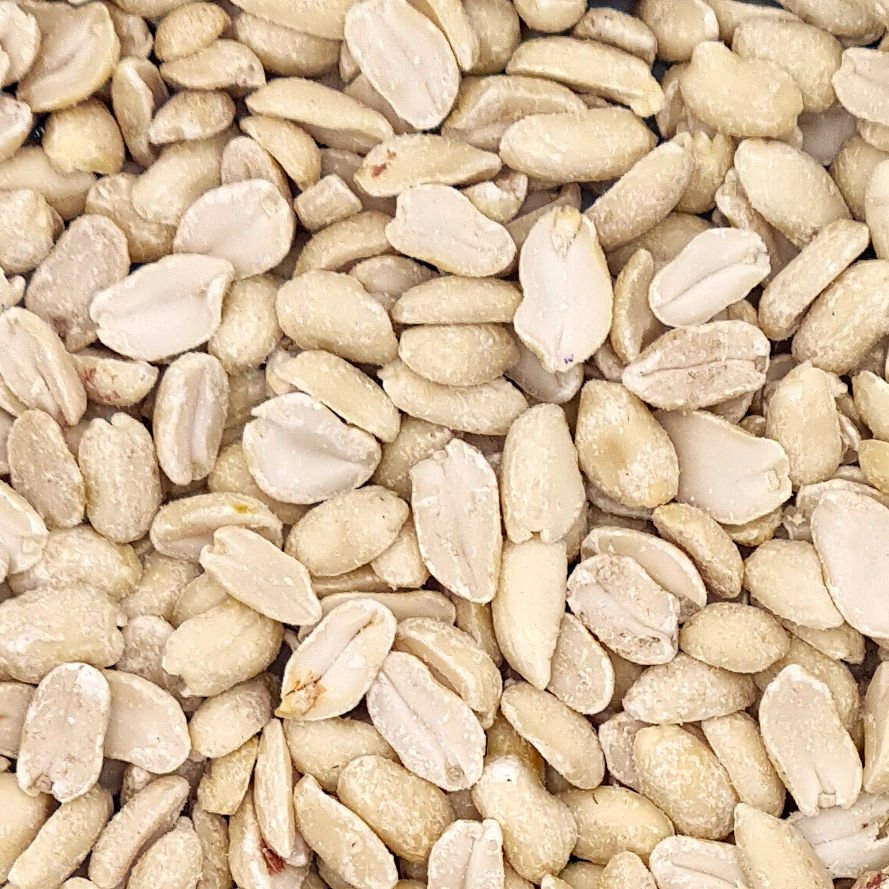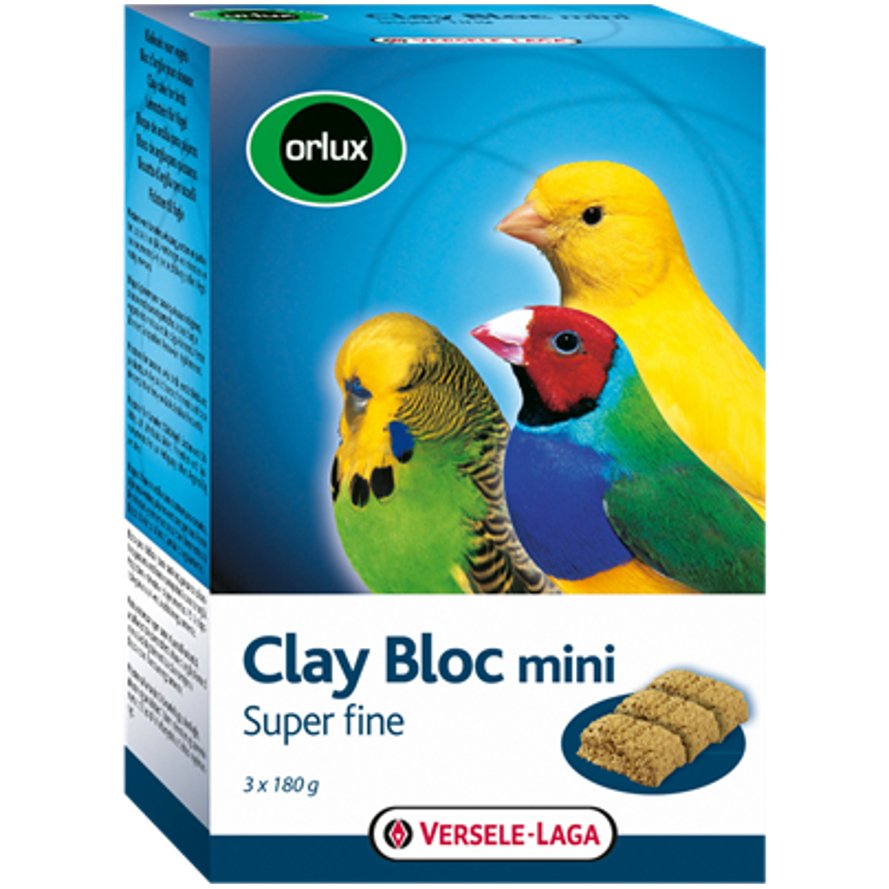
Healthy chinchilla food
Welcome to our online store for the species-appropriate nutrition of chinchillas! Here you will find high quality products specially developed for the needs of chinchillas, offering a balanced mix of dry herbs and seeds. Our carefully selected products support your chinchilla's natural diet and promote their health and vitality. Help your fluffy friend feel healthy and happy by buying species-appropriate food!- with native leaves & herbs
- coarse structure
Content: 0.5 kg (€21.00* / 1 kg )
- expectorant and helps with expectoration
- Can also be used for inhalations
Content: 0.5 kg (€24.00* / 1 kg )
- high-quality leaves & herbal seeds from herbal medicine
- with 12 different flowers
Content: 0.5 kg (€24.00* / 1 kg )
- made from 100% diced vegetables
- vitamin-rich supplementary food & healthy treats
- 12 beneficial blossoms
- oriented towards the feeding needs of chinchillas
Content: 0.1 kg (€45.00* / 1 kg )
- 12 beneficial herbs
- promotes natural tooth wear
Content: 0.5 kg (€18.00* / 1 kg )
- rich food for feeding or as a change
- with vegetables and apple
Content: 0.5 kg (€11.00* / 1 kg )
- 4 7 % flowers and 53 % herbs and weeds
- Strengthens the immune system in a natural way
Content: 0.5 kg (€24.00* / 1 kg )
- Blätter heimischer Obst- und Laubbäume
- mit gesunden Unkräutern
Content: 0.5 kg (€21.00* / 1 kg )
- meadow grass hay from permanent grassland
- with herbs, root vegetables and flowers
Content: 0.5 kg (€17.00* / 1 kg )
- diverse organic meadow grass hay with herbs
- flowers, vegetables and apple
Content: 0.5 kg (€11.00* / 1 kg )
- Herb and leaf mixture with dandelion root
- Free from dried vegetables and pulses
Content: 0.5 kg (€17.00* / 1 kg )
- natural meadow grass hay with herbs
- with tasty vegetables
Content: 0.5 kg (€17.00* / 1 kg )
- high-quality oil seeds
- healthy and natural concentrate for chinchillas
- With 9 different flowers from natural medicine
- Flowers can also be used for tea
Content: 0.1 kg (€45.00* / 1 kg )
- improved recipe of grass and flower supplement
- 5 varieties of grass seed and 4 varieties of flowers
Content: 0.5 kg (€19.00* / 1 kg )
- 6 different grass seed varieties with fine herbs
- millet and grain-free
Content: 0.5 kg (€19.00* / 1 kg )
- Improved recipe of the Health Extra
- High-quality herbal seeds known from herbal medicine
Content: 0.5 kg (€20.00* / 1 kg )
- ready-to-use sprouted food for hamsters, mice and rats
- Important nutrients, minerals and vitamins
Content: 210 Milliliter (€2.62* / 100 Milliliter )

